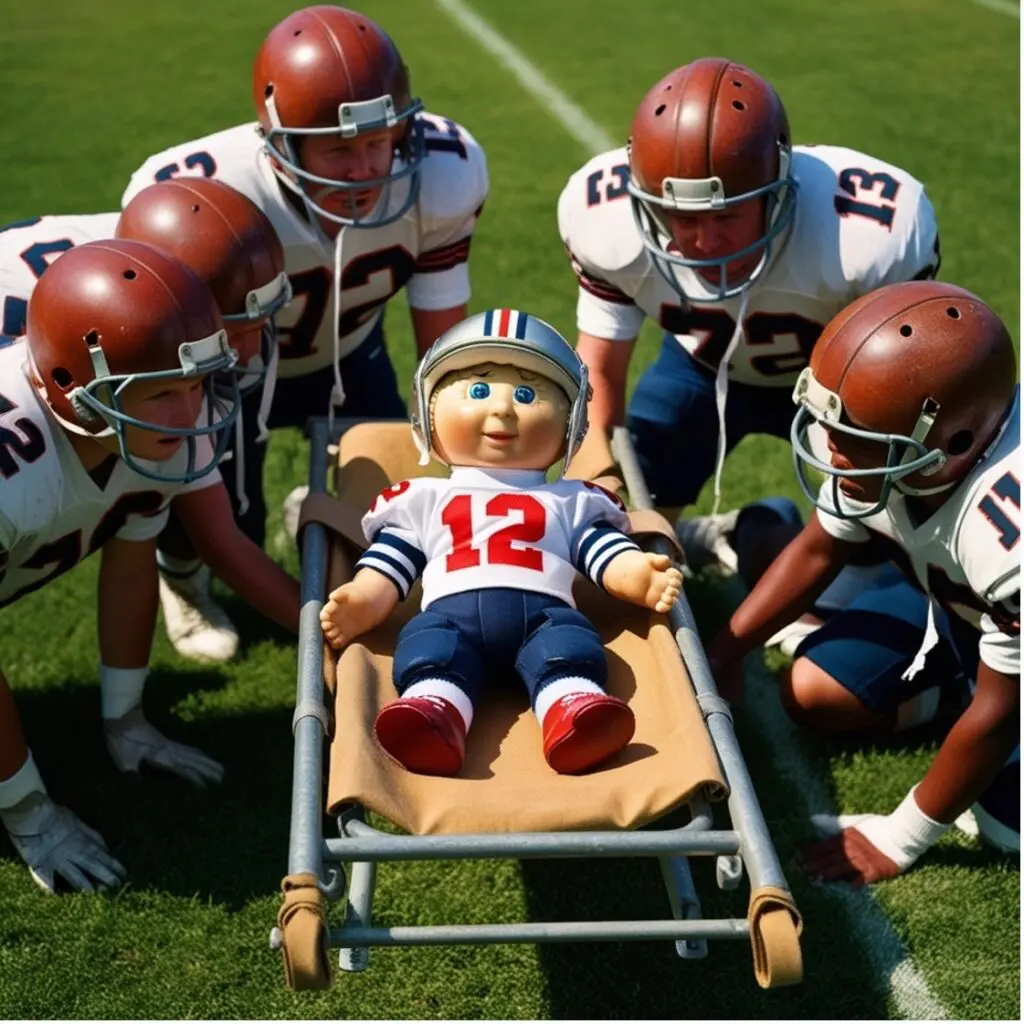“Mamas, don’t let your babies grow up to be (Dallas) cowboys!”

Leonardo.AI

The Risks Associated With Collision Sports*
*[e.g., American Football, Boxing, Ice Hockey, Rugby]
Short-Term Risk (like tomorrow, at practice)

Risks Increase Yearly for Ice Hockey

https://www.npr.org/2024/12/04/nx-s1-5214628/ice-hockey-nhl-cte-head-impacts-concussions
(Abdolmohammadi B, Tuz-Zahra F, Uretsky M, et al. Duration of Ice Hockey Play and Chronic Traumatic Encephalopathy. JAMA Netw Open. 2024;7(12):e2449106. doi:10.1001/jamanetworkopen.2024.49106)
Long-Term Risks
Repeated Traumatic Brain Injury (TBI) in athletes (so far most extensively studied in boxers and football players) both increases an individual’s risk for Alzheimer’s disease and is the classic cause of Chronic Traumatic Encephalopathy (CTE). CTE is a largely preventable degenerative dementia resulting from repeated bouts of TBI. Even mild injuries from repetitive head trauma, often without concussion, increase the risk for CTE. A single moderate-to-severe TBI can also increase the risk of subsequent Alzheimer’s disease.
https://journals.sagepub.com/doi/10.3233/JAD-161002?url_ver=Z39.88-2003&rfr_id=ori:rid:crossref.org&rfr_dat=cr_pub%20%200pubmed
Mendez MF. What is the Relationship of Traumatic Brain Injury to Dementia? J Alzheimers Dis. 2017;57(3):667-681. doi:10.3233/JAD-161002.
Comments Welcome
The post “Mamas, don’t let your babies grow up to be (Dallas) cowboys!” appeared first on ouragingbrains.
Originally Published on https://agingoralzheimers.com/
Kenneth Frumkin, PhD, MD, FACEP studied physiological psychology (the interaction of the body’s basic biologic mechanisms with behavior) in college and graduate school. He earned his Masters and Ph.D. degrees from McGill University for his work on the relative contributions of nature and nurture to the ingrained survival mechanism of poison-avoidance in rats. After two years of research at the U.S. Army’s Biomedical Laboratories, Ken went on to medical school and a residency in emergency medicine. His 36-year medical career was split between community hospital emergency departments and teaching, research, and practice in military academic medical centers.
Board-certified in his specialty, Dr. Frumkin is the author of over three dozen peer-reviewed publications and textbook chapters in psychology and medicine. His article “How to Survive the Emergency Room” published in the AARP Bulletin, was a 2022 National Mature Media Merit Award winner. A complete list of publications and complete resume are at www.linkedin.com/in/KennethFrumkinPhDMD . A Fellow and Life Member of the American College of Emergency Physicians and their Geriatric Emergency Medicine Section, Dr. Frumkin is also an Emeritus member of the Society for Academic Emergency Medicine and their Academy of Geriatric Emergency Medicine. Having retired as a civilian employee of the Department of the Navy in 2017, Dr. Frumkin is currently a volunteer member of the academic faculty at the Emergency Medicine Residency, Naval Medical Center, Portsmouth, Virginia.
Dr. Frumkin writes from the perspective of a practiced author and researcher and, most importantly, as a fellow boomer with “skin in the game.” He, too, is seeking the answers to nearly every older-person’s questions about their fluctuating memories and the possibility of progressive cognitive decline. His book "Aging or Alzheimer’s? A Doctor’s Personal Guide to Memory Loss, Cognitive Decline, and Dementia" comes out November 5, 2024. (AgingOrAlzheimers.com)
























